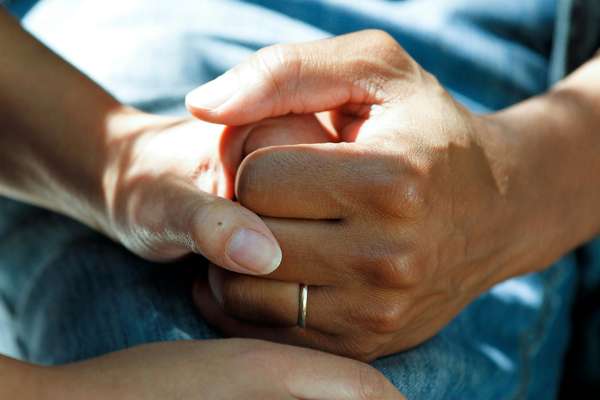
The letter arrived in February with devastating news, but also a promise.
Karenne Mosley's aggressive uterine cancer hadn't spread, and she'd been fast-tracked for Category 1 surgery—the highest priority level requiring treatment within 30 days.
More than three months later, the 70-year-old former Queensland nurse was told her cancer had doubled in size and become inoperable. She's now one of thousands of Australians caught in a hospital system that's failing its most vulnerable patients.
'I'm going to die, and probably within 12 months,' Ms Mosley said. 'They might have seen me within 30 days for each list, but ultimately the whole time was something like 105 days till they said it was inoperable.'
Her story isn't unique. At Sydney's Westmead Hospital, doctors report an average 178-day wait for cancer diagnosis, with 3,356 patients on endoscopy waiting lists—and not one cancer patient diagnosed within the recommended 30 days.
When promises become broken dreams
Ms Mosley's journey through Queensland's health system reveals how quickly things can unravel. Booked for surgery on April 23 at Royal Brisbane and Women's Hospital, her operation was cancelled for a colonoscopy. Rescheduled for June 18, another scan the day before revealed the cancer had grown beyond surgical reach.
'I was extremely angry at them for leaving it for so long because initially it was operable. They let it grow,' she said.
'The reality is, a cancer doesn't know what time it is, or what day of the week it is. It's growing, so you want to be able to do it as quickly as possible'
Meanwhile, 70-year-old Tom Van Der Zee faced his own ordeal in Melbourne. Despite being registered for thyroid cancer surgery at Austin Hospital, he arrived ready for his operation only to be told all Category 2 surgeries were cancelled due to bed shortages.
'Someone walks in and I'm expecting them to put up the bed sides and wheel me down the hallway and the person said, 'Do you want something to eat? Your surgery has been cancelled',' he recalled.
The numbers behind the crisis
Recent data from NSW shows the scale of the problem: over 100,000 people awaiting elective surgery, with 8,587 patients forced to wait longer than clinically recommended in just the first quarter of 2025—a staggering 151 per cent increase from the previous year.
The AMA's 2025 Public Hospital Report Card reveals the concerning reality: despite some short-term improvements, the report notes increasing wait times for essential surgeries and longer waits for patients in emergency departments.
Australia's surgery waiting crisis by the numbers
- Over 100,000 people awaiting elective surgery in NSW alone
- 151 per cent increase in patients waiting longer than recommended
- Average 178-day wait for cancer diagnosis at major Sydney hospital
- 40 per cent of Australians use private healthcare to skip public queues
- Category 2 patients waiting average 65 days longer than recommended
But there's something more troubling happening behind these statistics.
Gaming the system: When urgent becomes 'not ready'
Dr Rob Knox from Orange Hospital has exposed a disturbing practice: cancer patients being downgraded from Category 1 to Category 4 ('not ready for care') by administrators without consulting surgeons, simply because operations couldn't be performed within the recommended timeframe. This reclassification removes them from waiting lists, artificially improving hospital performance figures.
'I and my colleagues have been directly asked by hospital management to downgrade urgency categories,' Dr Knox revealed.
Though health authorities deny these claims, senior specialists from multiple Sydney hospitals told media that their hospitals refuse to add referred patients to Category 1 lists when theatres and resources are unavailable.
The deadly mathematics of delay
The medical consequences are stark. Dr Knox warns that while delaying cancer surgery for a few days might not impact patients, a four-week suspension could increase mortality rates by as much as 5 per cent.
Medical experts stress that timely interventions like surgery can prevent deaths from bowel, breast and lung cancers. Without prompt surgery, cancers progress and patients with early-stage disease face reduced opportunities for cure.
Understanding surgery categories in Australia
Category 1: Surgery within 30 days (life-threatening conditions, including most cancers)
Category 2: Surgery within 90 days (semi-urgent procedures)
Category 3: Surgery within 365 days (non-urgent procedures)
Category 4: 'Not ready for care' - no surgery date set
Doctors fight back
The crisis has sparked unprecedented action from medical professionals. In June 2025, around 200 senior doctors at Westmead Hospital passed a unanimous no-confidence motion in their health district chief executive, prompting his resignation. Their letter stated: 'Delayed cancer diagnoses are now a regular occurrence which is devastating for patients and demoralising for staff'.
This revolt represents more than workplace frustration—it's doctors putting their careers on the line for patient care.
The two-tier reality
Around 40 per cent of Australians purchase private healthcare or self-fund private care, enabling them to 'skip the queue' in the public system by accessing elective surgery in private hospitals.
This creates a troubling reality for many seniors on fixed incomes who can't afford private alternatives. While wealthier Australians access timely cancer surgery, public patients like Karenne and Tom face life-threatening delays.
Did you know?
Did you know?
Australia's universal healthcare system was designed to provide equal access to treatment, but waiting times in the public system mean those who can afford private care receive faster treatment for the same conditions, creating a de facto two-tier system.
What this means for you
If you're facing cancer surgery in the public system, understanding your rights is crucial:
- Ask your specialist exactly which category you've been assigned and why
- Request written confirmation of your waiting list placement
- Contact the hospital if you haven't heard anything within your category timeframe
- Don't hesitate to seek a second opinion or ask your GP to follow up
- Consider whether private healthcare or self-funding might be an option
Most importantly, stay vigilant about any changes to your symptoms and maintain regular contact with your GP during waiting periods.
The funding fight continues
The AMA warns that without increased investment from both state and federal governments, hospital capacity will continue to fall, and already overworked staff will face increasing burnout rates. They're calling for a new National Health Reform Agreement and funding to improve hospital performance.
The Commonwealth has increased its hospital funding offer to almost $20 billion, up from $17.8 billion, but health experts argue this isn't enough to address the crisis.
Example Scenario
- The ongoing funding dispute between Commonwealth and state governments directly affects your access to timely surgery. While politicians negotiate, patients wait—sometimes with fatal consequences.
Karenne Mosley chose palliative care over chemotherapy with less than a one-in-three success rate. 'I decided that I'd rather have quality of life than quantity of life,' she said. 'As for dying, you know you've got to die some time, but I would have preferred a bit longer.'
Her words capture the human cost of a system under strain—not just in statistics or waiting times, but in dreams deferred and time lost.
Tom Van Der Zee eventually had his surgery in June. Karenne Mosley was told in June her cancer was inoperable. The difference between these outcomes often comes down to timing, resources, and sometimes—tragically—luck.
What This Means For You
Have you or a loved one experienced delays in cancer surgery? Share your story in the comments below—your experience could help other seniors navigate this challenging system or advocate for the changes our health system desperately needs.
Original Article
https://www.abc.net.au/news/2025-09...amed-for-delays-to-cancer-surgeries/105724218
Hospital Performance: Cancer surgery waiting times in public hospitals in 2012—13 , Summary—Australian Institute of Health and Welfare
Cited text: Of these, 13,697 patients received planned surgery for malignant bowel, breast or lung cancer at a public hospital.
Excerpt: More than three months later, the 70-year-old former Queensland nurse was told her cancer had doubled in size and become inoperable.
https://www.aihw.gov.au/reports/hos...cancer-surgery-times-2012-13/contents/summary
Hospital Performance: Cancer surgery waiting times in public hospitals in 2012—13 , Summary—Australian Institute of Health and Welfare
Cited text: The vast majority (92 per cent) of patients received their planned surgery within 30 days and almost all (97 per cent) received their surgery within 45 days.
Excerpt: More than three months later, the 70-year-old former Queensland nurse was told her cancer had doubled in size and become inoperable.
https://www.aihw.gov.au/reports/hos...cancer-surgery-times-2012-13/contents/summary
Australia: More than 100,000 patients waiting for elective surgery in NSW public hospitals—World Socialist Web Site
Cited text: A week earlier, the doctors had written to management, raising that “Delayed cancer diagnoses are now a regular occurrence which is devastating for pa...
Excerpt: At Sydney's Westmead Hospital, doctors report an average 178-day wait for cancer diagnosis, with 3,356 patients on endoscopy waiting lists—and not one cancer patient diagnosed within the recommended 30 days
https://www.wsws.org/en/articles/2025/06/28/tuej-j28.html
Australia: More than 100,000 patients waiting for elective surgery in NSW public hospitals—World Socialist Web Site
Cited text: Waiting times for elective surgery in New South Wales (NSW) public hospitals significantly increased in the first quarter of this year, according to t...
Excerpt: Recent data from NSW shows the scale of the problem: over 100,000 people awaiting elective surgery, with 8,587 patients forced to wait longer than clinically recommended in just the first quarter of 2025—a staggering 151 per cent increase from…
https://www.wsws.org/en/articles/2025/06/28/tuej-j28.html
2025 public hospital report card
Cited text: Improvements compared to 2022—23 include: the percentage of patients triaged as emergency being seen on time, the proportion of category 2 planned sur...
Excerpt: The AMA's 2025 Public Hospital Report Card reveals the concerning reality: despite some short-term improvements, the report notes increasing wait times for essential surgeries and longer waits for patients in emergency departments
https://apo.org.au/node/329861
2025 public hospital report card
Cited text: It notes increasing wait times for essential surgeries and longer waits for patients in emergency departments; highlighting the need for increased inv...
Excerpt: The AMA's 2025 Public Hospital Report Card reveals the concerning reality: despite some short-term improvements, the report notes increasing wait times for essential surgeries and longer waits for patients in emergency departments
https://apo.org.au/node/329861
2025 public hospital report card
Cited text: · While some short-term improvements are noted, the report notes increasing wait times for essential surgeries and longer waits for patients in EDs.
Excerpt: The AMA's 2025 Public Hospital Report Card reveals the concerning reality: despite some short-term improvements, the report notes increasing wait times for essential surgeries and longer waits for patients in emergency departments
https://apo.org.au/node/329861
Australia: More than 100,000 patients waiting for elective surgery in NSW public hospitals—World Socialist Web Site
Cited text: Last month, Dr Rob Knox, director of the surgical department at Orange Hospital, in the central tablelands of NSW, told the Australian Broadcasting Co...
Excerpt: Dr Rob Knox from Orange Hospital has exposed a disturbing practice: cancer patients being downgraded from Category 1 to Category 4 ('not ready for care') by administrators without consulting surgeons, simply because operations couldn't be…
https://www.wsws.org/en/articles/2025/06/28/tuej-j28.html
Australia: More than 100,000 patients waiting for elective surgery in NSW public hospitals—World Socialist Web Site
Cited text: A spokesperson for the Western NSW Local Health District, which includes Orange, told the ABC the health authority “rejects claims that surgeons have ...
Excerpt: Though health authorities deny these claims, senior specialists from multiple Sydney hospitals told media that their hospitals refuse to add referred patients to Category 1 lists when theatres and resources are unavailable
https://www.wsws.org/en/articles/2025/06/28/tuej-j28.html
Australia: More than 100,000 patients waiting for elective surgery in NSW public hospitals—World Socialist Web Site
Cited text: Knox told the ABC that delaying surgery for a few days would not necessarily impact a cancer patient, but a four-week suspension could increase the mo...
Excerpt: Dr Knox warns that while delaying cancer surgery for a few days might not impact patients, a four-week suspension could increase mortality rates by as much as 5 per cent
https://www.wsws.org/en/articles/2025/06/28/tuej-j28.html
Hospital Performance: Cancer surgery waiting times in public hospitals in 2012—13 , Summary—Australian Institute of Health and Welfare
Cited text: Timely interventions such as surgery can prevent deaths occurring from these three types of cancer.
Excerpt: Medical experts stress that timely interventions like surgery can prevent deaths from bowel, breast and lung cancers.
https://www.aihw.gov.au/reports/hos...cancer-surgery-times-2012-13/contents/summary
Hospital Performance: Cancer surgery waiting times in public hospitals in 2012—13 , Summary—Australian Institute of Health and Welfare
Cited text: Waiting times for surgery is a measure of access to treatment that can help maintain quality of life or be potentially life-saving. Without timely sur...
Excerpt: Medical experts stress that timely interventions like surgery can prevent deaths from bowel, breast and lung cancers.
https://www.aihw.gov.au/reports/hos...cancer-surgery-times-2012-13/contents/summary
Australia: More than 100,000 patients waiting for elective surgery in NSW public hospitals—World Socialist Web Site
Cited text: Westmead Hospital in Sydney’s western suburbs [Photo: Westmead Hospital ] On Thursday night, around 200 senior doctors at Westmead Hospital unanimousl...
Excerpt: In June 2025, around 200 senior doctors at Westmead Hospital passed a unanimous no-confidence motion in their health district chief executive, prompting his resignation.
https://www.wsws.org/en/articles/2025/06/28/tuej-j28.html
The impact of public performance reporting on cancer elective surgery waiting times: a data linkage study | BMC Health Services Research | Full Text
Cited text: Around 40 per cent of Australians choose to purchase private healthcare, or self-fund private care, which enables them to “skip the queue” in the public syste...
Excerpt: Around 40 per cent of Australians purchase private healthcare or self-fund private care, enabling them to 'skip the queue' in the public system by accessing elective surgery in private hospitals
https://bmchealthservres.biomedcentral.com/articles/10.1186/s12913-021-06132-w
2025 public hospital report card
Cited text: Without increased investment in the health system by both state and federal governments, capacity will continue to fall, and already overworked hospit...
Excerpt: The AMA warns that without increased investment from both state and federal governments, hospital capacity will continue to fall, and already overworked staff will face increasing burnout rates.
https://apo.org.au/node/329861







